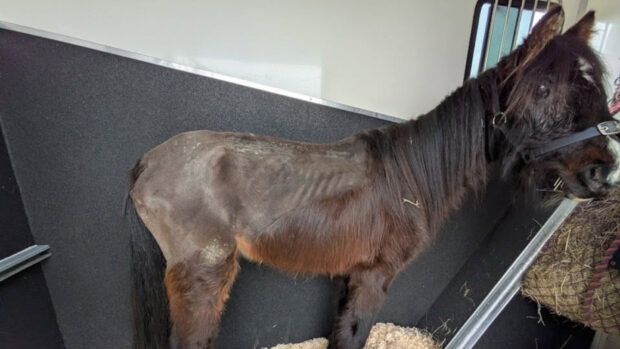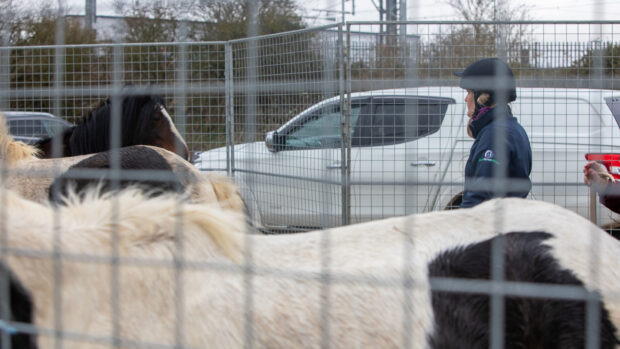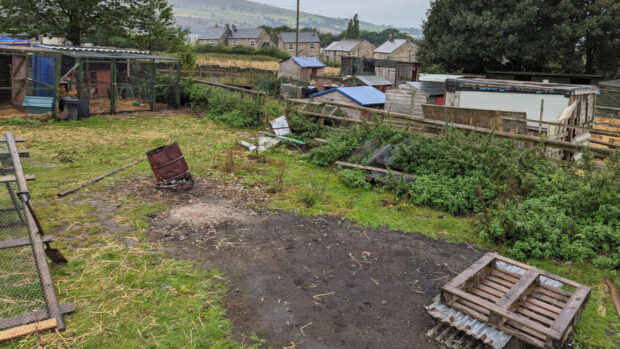A colt who was found collapsed, with necrotic wounds to the bone for which his owner had failed to seek vet treatment, had to be put down to prevent him suffering further.
Carl Knowles, 29, of Halbutt Street, Dagenham, appeared at Chelmsford Magistrates’ Court on 1 June. He pleaded guilty to one offence of causing unnecessary suffering to 18-month old Max between 10 and 14 December 2020.
RSPCA inspector Jessica Dayes attended a location in Harlow with animal rescue officer Rebecca Yarrow and the police on 14 December 2020, following reports of a collapsed horse.
An RSPCA spokesman said when the team arrived they found Max collapsed and inspector Dayes reported he was making no attempt to stand because he was weak.
“She could see that Max’s hips and spine were clearly visible and there was a pile of faeces behind him which indicated he had been in the same position for some time,” said the spokesman.
“There appeared to be some bread placed in front of Max but this was wet and not eaten. Only muddy water was available.”
Max was seized by the police and a vet was called to administer pain relief.
“Rescuers could see he was suffering from open pressure sores on both elbows and between his front legs. When the wounds were examined at the hospital they had a putrid smell,” said the spokesman.
“Skin lesions on the limbs and over both points of the elbow had deep, ulcerated and necrotic wounds that penetrated to the bone and ligaments.”
The spokesman said the vet made the decision to put Max down to prevent him suffering further owing to his increased pulse, low body temperature, and the depth, extent and decay of his untreated wounds.
“The vet report stated it was unacceptable for any equine to be left collapsed, without the ability to move freely for days, without seeking further professional advice,” said Ms Dayes.
“The emaciation should have been investigated and treated and appropriate treatment should have been sought for the pain and discomfort caused by the wounds. All of Max’s conditions should have led any reasonable owner to seek immediate veterinary care.”
Continued below…

Competition rider who ‘chose to allow’ livery horses to suffer may still keep equines despite colt’s death
“It torments me wondering if he stood there starving and neglected and wondered why I didn’t come for him”

‘Cancel out cruelty once and for all’: tougher sentences for animal abusers made law four years on
“This reform is long overdue – for many years, the most violent and horrific abuse and cruelty received a maximum

Subscribe to Horse & Hound magazine today – and enjoy unlimited website access all year round
In mitigation Knowles said he had called a vet but could not afford the treatment.
Knowles was given an 18-week prison sentence, suspended for 12 months, and ordered to carry out 150 hours of unpaid work. He was banned from keeping animals for life and cannot appeal this for 10 years. He must pay £600 costs and a £128 victim surcharge.
Horse & Hound magazine, out every Thursday, is packed with all the latest news and reports, as well as interviews, specials, nostalgia, vet and training advice. Find how you can enjoy the magazine delivered to your door every week, plus options to upgrade to access our H&H Plus online service which brings you breaking news as it happens as well as other benefits.




